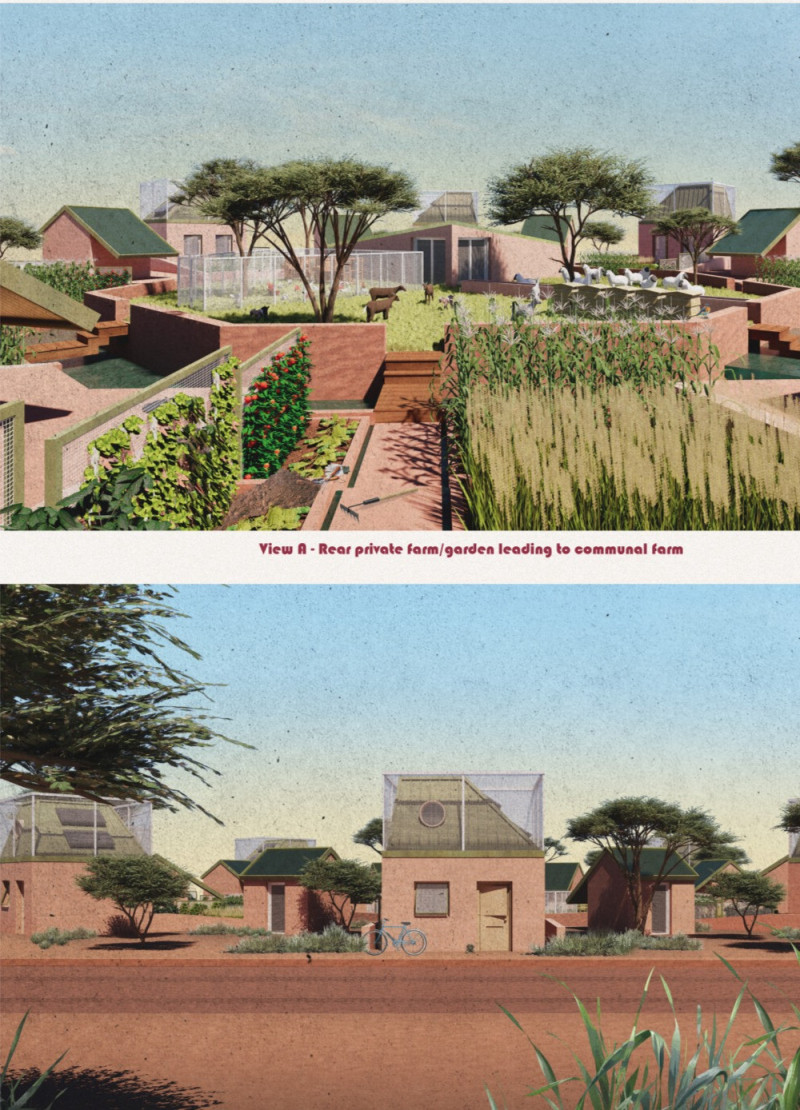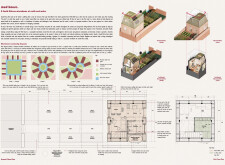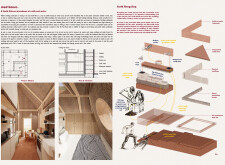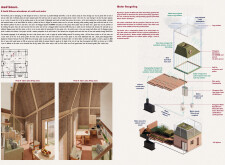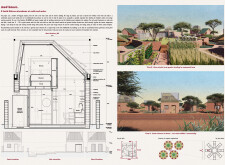5 key facts about this project
### Overview
Located in South Africa, the Mud House project addresses critical issues of resource scarcity and housing accessibility, developed between 2015 and 2020 during a significant water crisis. This initiative presents a prototype for sustainable living, utilizing local materials to construct affordable housing that minimizes environmental impact. The design focuses on promoting community resilience and fostering a collaborative environment among residents.
### Spatial Efficiency
The architectural layout emphasizes compactness and functionality, enhancing spatial efficiency throughout the home. Open living spaces are created to adapt to the diverse needs of residents, with designated areas for communal activities, relaxation, and private living. This strategic arrangement facilitates an optimal flow within the household, encouraging interaction while maintaining private zones.
### Sustainable Material Use
The Mud House employs a variety of sustainable materials that underscore its commitment to environmental responsibility. Compressed earth blocks, sourced from local soil, form the primary walls, offering excellent insulation and temperature regulation. Timber frames, obtained through sustainable practices, provide structural support, while sandbags serve as durable insulation elements. The design also incorporates a green roof system to promote biodiversity and effectively manage water runoff. Each material choice is intentional, aligning with both budgetary considerations and environmental sustainability.
### Water and Energy Management
Effective water management is integral to the Mud House, featuring systems that capture, filter, and recycle resources. A rainwater harvesting system collects runoff from sloped roofs into storage tanks, complemented by greywater recycling for household activities, which reduces waste. The architectural design incorporates natural ventilation through high ceilings and strategically placed openings to enhance airflow, decreasing dependence on mechanical cooling. Orientation and thermal mass principles optimize natural light and passive heating, further reducing energy consumption.


